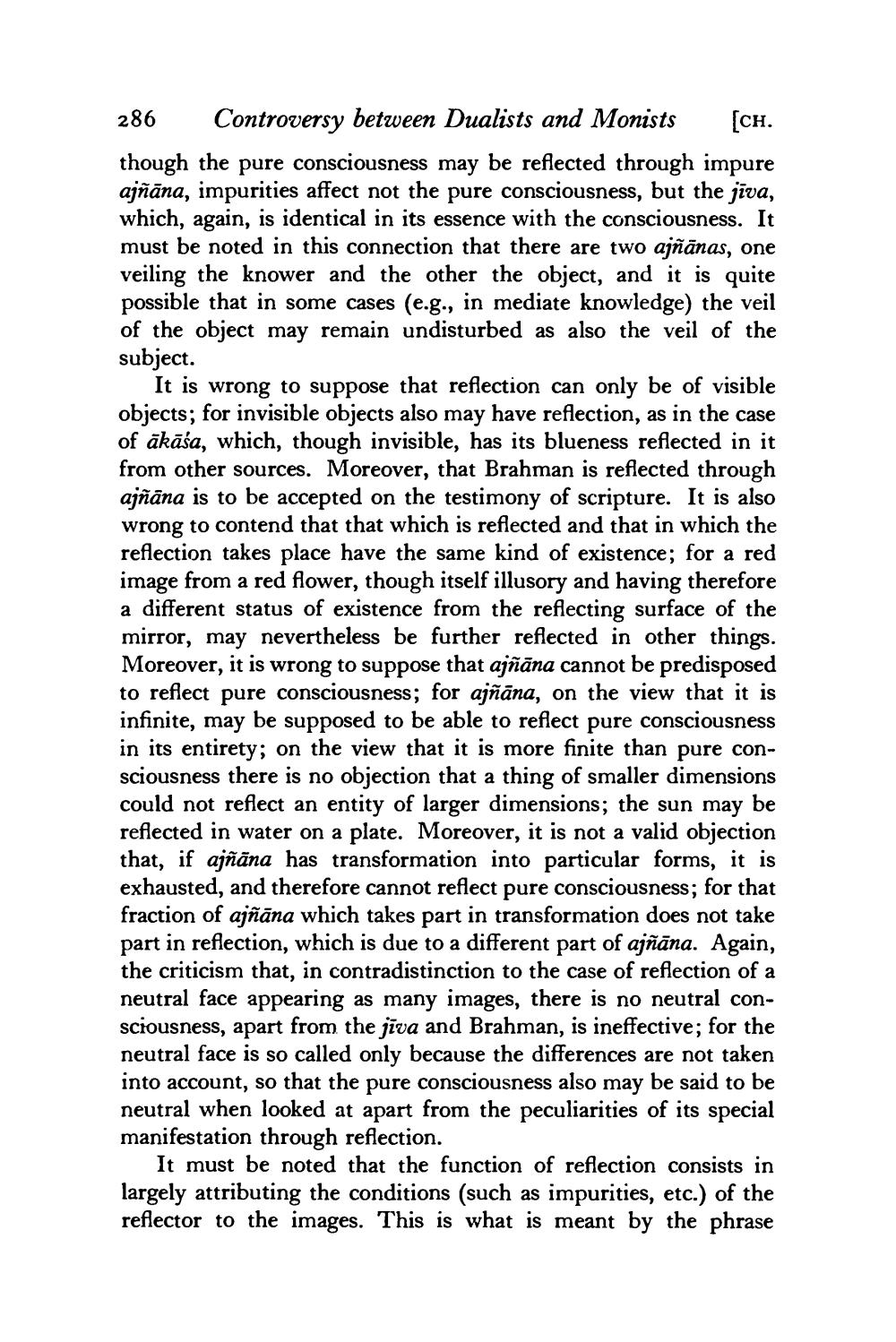________________
286 Controversy between Dualists and Monists [CH. though the pure consciousness may be reflected through impure ajñāna, impurities affect not the pure consciousness, but the jīva, which, again, is identical in its essence with the consciousness. It must be noted in this connection that there are two ajñānas, one veiling the knower and the other the object, and it is quite possible that in some cases (e.g., in mediate knowledge) the veil of the object may remain undisturbed as also the veil of the subject.
It is wrong to suppose that reflection can only be of visible objects; for invisible objects also may have reflection, as in the case of ākāša, which, though invisible, has its blueness reflected in it from other sources. Moreover, that Brahman is reflected through ajñāna is to be accepted on the testimony of scripture. It is also wrong to contend that that which is reflected and that in which the reflection takes place have the same kind of existence; for a red image from a red flower, though itself illusory and having therefore a different status of existence from the reflecting surface of the mirror, may nevertheless be further reflected in other things. Moreover, it is wrong to suppose that ajñāna cannot be predisposed to reflect pure consciousness; for ajñāna, on the view that it i infinite, may be supposed to be able to reflect pure consciousness in its entirety; on the view that it is more finite than pure consciousness there is no objection that a thing of smaller dimensions could not reflect an entity of larger dimensions; the sun may be reflected in water on a plate. Moreover, it is not a valid objection that, if ajñāna has transformation into particular forms, it is exhausted, and therefore cannot reflect pure consciousness; for that fraction of ajñāna which takes part in transformation does not take part in reflection, which is due to a different part of ajñāna. Again, the criticism that, in contradistinction to the case of reflection of a neutral face appearing as many images, there is no neutral consciousness, apart from the jīva and Brahman, is ineffective; for the neutral face is so called only because the differences are not taken into account, so that the pure consciousness also may be said to be neutral when looked at apart from the peculiarities of its special manifestation through reflection.
It must be noted that the function of reflection consists in largely attributing the conditions (such as impurities, etc.) of the reflector to the images. This is what is meant by the phrase




